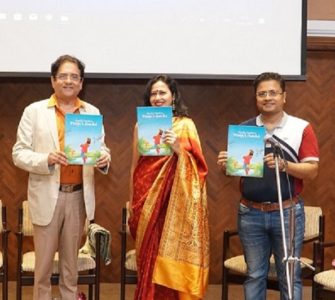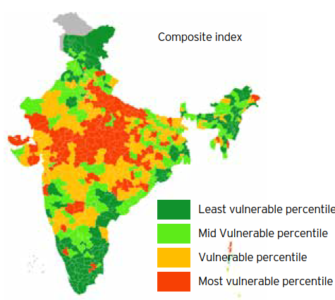 Education in India is provided by the public sector as well as the private sector, with control and funding coming from three levels: central, state and local. Under various articles of the Indian Constitution, free and compulsory education is provided as a fundamental right to children between the ages of 6 and 14. Our education system is geared towards teaching and testing knowledge at every level as opposed to teaching vocational skills which can be used at the workplace. Knowledge is largely forgotten after the exams. The best crammers are rewarded by the system. This is one of the fundamental flaws of our education system. To ensure that education reaches our remote areas we have to invest in technological infrastructure that will make access to knowledge easier than ever. The tools for this dissemination will be cheap smartphones, tablets and computers with high speed internet connection. Our teachers should be valued , respected and most important highly rewarded for their efforts.
Education in India is provided by the public sector as well as the private sector, with control and funding coming from three levels: central, state and local. Under various articles of the Indian Constitution, free and compulsory education is provided as a fundamental right to children between the ages of 6 and 14. Our education system is geared towards teaching and testing knowledge at every level as opposed to teaching vocational skills which can be used at the workplace. Knowledge is largely forgotten after the exams. The best crammers are rewarded by the system. This is one of the fundamental flaws of our education system. To ensure that education reaches our remote areas we have to invest in technological infrastructure that will make access to knowledge easier than ever. The tools for this dissemination will be cheap smartphones, tablets and computers with high speed internet connection. Our teachers should be valued , respected and most important highly rewarded for their efforts.
Venugopal Panicker,
Corporate Executive
 There is a need to bring a reform in education sector in our country. The students should be imparted practical knowledge with emphasis on experimental learning to do away with the rote system and bookish knowledge.
There is a need to bring a reform in education sector in our country. The students should be imparted practical knowledge with emphasis on experimental learning to do away with the rote system and bookish knowledge.
Andrew James
Lucknow
 The government should try to bring uniform education policy. It is unfortunate that children right from tender age are exposed to heavy doses of bookish knowledge. They are forced to learn even mathematical problems by heart. Fun way of learning should be the key of teaching.
The government should try to bring uniform education policy. It is unfortunate that children right from tender age are exposed to heavy doses of bookish knowledge. They are forced to learn even mathematical problems by heart. Fun way of learning should be the key of teaching.
Anil Mitra
Bellary
 Education system in India neither recognises the current needs of students nor provides the desired infrastructure. Our children are put into a machine. It takes 12 years for a finished product. India does not have enough teachers who can understand the methods being recommended by the various frameworks.A high pupil-teacher ratio impedes the imparting of soft skills and has an adverse impact on the emotional growth of children. The system of not retaining the students in the same class till Class VIII has adversely affected the quality of education. We should rethink the necessity of children spending 12 years in school with a nationally fixed curriculum.We should also eliminate outdated methods of teaching. The performance of the students could be based on more projects and innovative assignments versus solely on exams.
Education system in India neither recognises the current needs of students nor provides the desired infrastructure. Our children are put into a machine. It takes 12 years for a finished product. India does not have enough teachers who can understand the methods being recommended by the various frameworks.A high pupil-teacher ratio impedes the imparting of soft skills and has an adverse impact on the emotional growth of children. The system of not retaining the students in the same class till Class VIII has adversely affected the quality of education. We should rethink the necessity of children spending 12 years in school with a nationally fixed curriculum.We should also eliminate outdated methods of teaching. The performance of the students could be based on more projects and innovative assignments versus solely on exams.
K V Chandrasekhar
Retired General Manager, IDBI
 Bookish knowledge is bound to be forgotten soon. Hence, emphasis should be on practical learning. There is a need to change the present curriculum and incorporate fun way of learning. Education should be fun and we need to develop healthy young children and not robots.
Bookish knowledge is bound to be forgotten soon. Hence, emphasis should be on practical learning. There is a need to change the present curriculum and incorporate fun way of learning. Education should be fun and we need to develop healthy young children and not robots.
Dennis Andrade,
Bahrain













